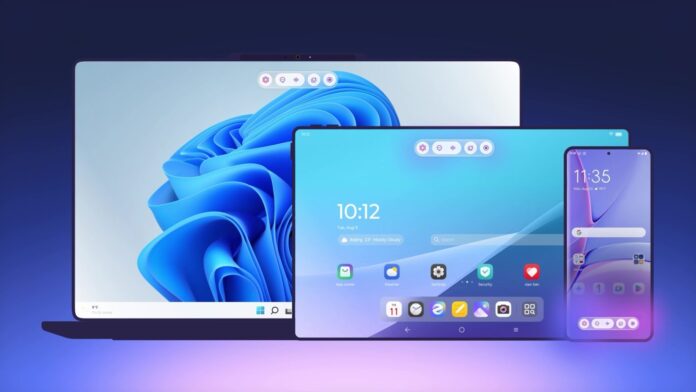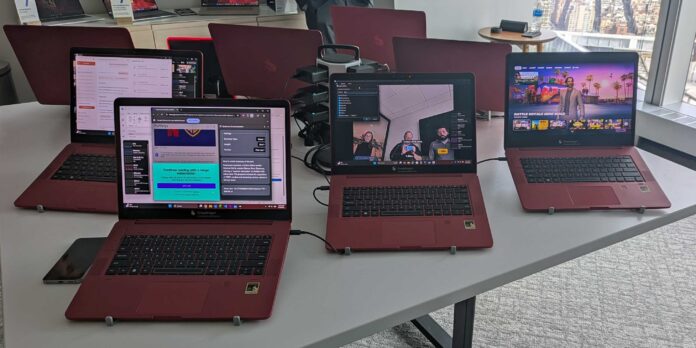## Verizon Business is Stepping Up its Cybersecurity Game – Your Data Just Got a Whole Lot Safer
In a world where data breaches are becoming as common as traffic jams, having robust cybersecurity is no longer just a good idea, it’s a necessity. And Verizon Business is taking that necessity seriously.

Making Cybersecurity Accessible to All Business Sizes

Verizon Business has made significant strides in democratizing cybersecurity by introducing a suite of bundled measures designed to provide comprehensive protection across various business infrastructures. Their Trusted Connection service employs a Zero Trust Network Access (ZTNA) framework, ensuring that devices, networks, and cloud-hosted applications are secured regardless of user location. This initiative is particularly beneficial for mid-sized and large enterprises that may lack dedicated cybersecurity resources.
Trusted Connection stands out due to its user-friendly interface and centralized control. The service offers a unified portal with a single policy console, simplifying the management of security measures. This centralized approach allows businesses to enforce consistent policies across their entire digital ecosystem, from cloud and SaaS applications to private networks.
One of the key features of Trusted Connection is its ability to verify users and devices continuously. This proactive approach ensures that only authorized users and devices can access critical digital assets, thereby reducing the risk of unauthorized access and potential data breaches. The service includes firewall-as-a-service, cloud access security broker (CASB), and a cloud-secure web gateway, all designed to enhance the security perimeter and protect data flow between users and cloud applications.
Case Studies and Success Stories
Real-world Examples of Trusted Connection in Action
Several enterprises have already benefited from Verizon Business’s Trusted Connection. For instance, a leading healthcare provider implemented Trusted Connection to secure its telemedicine platforms. By leveraging the ZTNA framework, the provider ensured that only authorized medical personnel could access patient data, thereby maintaining compliance with HIPAA regulations. This implementation not only enhanced security but also streamlined the management of access controls, reducing the administrative burden on IT staff.
In the retail sector, a major e-commerce company used Trusted Connection to secure its supply chain operations. The company’s supply chain involves multiple third-party vendors and logistics partners, each requiring secure access to critical data. Trusted Connection’s centralized control and continuous verification features ensured that only authorized vendors could access the necessary information, protecting the company from potential supply chain attacks.
Testimonials from Enterprise Customers
Enterprise customers have praised Trusted Connection for its ease of use and robust security features. “Trusted Connection has been a game-changer for us,” said a CIO from a logistics company. “It has simplified our security management and provided us with the peace of mind knowing that our data is protected from any unauthorized access.” Similarly, a healthcare IT director noted, “The continuous verification feature has been instrumental in protecting our patient data. We no longer have to worry about data breaches, and our compliance efforts have become much more manageable.”
Expert Insights and Analysis
Kyle Malady’s Perspective
Kyle Malady, CEO of Verizon Business, shared his vision for Trusted Connection. “Trusted Connection creates a protected environment within the outer walls of security, protecting each specific entry point and pathway that could lead a bad actor to a valuable digital asset,” he stated. Malady emphasizes the importance of creating a protected environment within an organization’s security perimeter. “It’s sophisticated security technology combined with an ease of use that makes cybersecurity accessible to businesses of all sizes,” he added.
Malady’s vision underscores the need for a layered approach to cybersecurity, where each entry point and pathway is secured individually. This approach ensures that even if one layer is breached, other layers of security remain intact, providing a comprehensive defense against cyber threats.
Massimo Peselli on 5G Integration
Massimo Peselli, Chief Revenue Officer of Verizon Business, discussed the synergy between 5G and cybersecurity. “The integration of 5G with our cybersecurity solutions opens up new possibilities for businesses,” Peselli explained. “5G’s low latency and high bandwidth capabilities enhance the performance of our security solutions, making them more effective in real-time threat detection and response.”
Peselli also highlighted the future trends and opportunities that 5G brings to the table. “As 5G networks become more prevalent, we expect to see an increased demand for private 5G services. These services will not only improve the speed and reliability of data transmission but also enhance the security of enterprise networks,” he noted. The integration of 5G with cybersecurity solutions is set to revolutionize how businesses protect their digital assets, enabling faster and more secure communication channels.
Technical Deep Dive
Understanding the Zero Trust Model
The Zero Trust model is a security concept centered on the belief that organizations should not automatically trust anything inside or outside its perimeters and instead must verify anything and everything trying to connect to its systems before granting access. This model differs from traditional security models that rely on perimeter-based defenses, which assume that everything inside the network is trustworthy.
- Principles of the Zero Trust framework:
- Never trust, always verify: Continuous verification of users and devices.
- Least privilege access: Granting the minimum level of access necessary for users and devices.
- Micro-segmentation: Dividing the network into smaller, isolated segments to limit the spread of threats.
- Continuous monitoring: Real-time monitoring of network activities to detect and respond to threats.
- Regularly updating security policies to address new threats.
- Conducting regular audits and penetration testing to identify and mitigate vulnerabilities.
- Providing ongoing training to employees on best practices for cybersecurity.
- Utilizing Verizon Business’s support and consultancy services to stay ahead of emerging threats.
By adhering to these principles, the Zero Trust model provides a more robust and flexible security framework, capable of adapting to the evolving threat landscape.
Implementation and Deployment
Integrating Trusted Connection into existing systems involves several steps. Initially, businesses need to assess their current security posture and identify areas that require enhancement. This assessment helps in defining the scope of Trusted Connection’s deployment and the specific security measures that need to be implemented.
Once the assessment is complete, the next step is to configure the centralized portal and policy console. This involves setting up the ZTNA framework, defining access policies, and integrating the firewall-as-a-service, CASB, and cloud-secure web gateway. Businesses can leverage Verizon Business’s expert guidance and support to ensure a smooth deployment process.
Best practices for optimizing Trusted Connection include:
Industry Impact and Future Trends
Growing Demand for Secure Connections
The demand for secure connections is on the rise, driven by the increasing need for private 5G services. Verticals such as healthcare, retail, logistics, and manufacturing are particularly keen on leveraging private 5G networks to enhance their operational efficiency and security. Private 5G networks offer the advantage of dedicated bandwidth and low latency, making them ideal for mission-critical applications.
As businesses adopt private 5G services, the integration of cybersecurity solutions becomes crucial. Trusted Connection, with its Zero Trust framework, provides the necessary security infrastructure to protect these private networks from cyber threats. The synergy between 5G and cybersecurity is set to drive innovation and enhance the digital transformation of various industries.
The Role of Verizon Business in Cybersecurity
Verizon Business is at the forefront of the cybersecurity landscape, offering innovative solutions that meet the evolving needs of enterprises. Their Trusted Connection service is a testament to their commitment to providing robust and accessible cybersecurity solutions. As the demand for secure connections grows, Verizon Business is well-positioned to lead the way in developing future innovations and developments.
Looking ahead, Verizon Business aims to continue enhancing its cybersecurity offerings, leveraging emerging technologies such as AI and machine learning to provide even more advanced threat detection and response capabilities. Their focus on creating a protected environment within the security perimeter ensures that businesses can operate with confidence, knowing that their digital assets are secure.
Conclusion
In conclusion, Verizon Business’s strategic enhancements in cybersecurity capabilities, as unveiled at Mobile World Live, underscore a pivotal shift in the telecommunications industry’s approach to safeguarding digital assets. The article delved into Verizon’s advanced threat detection systems, AI-driven security solutions, and robust incident response frameworks, showcasing a comprehensive suite designed to protect against an ever-evolving threat landscape. These initiatives are not just about staying ahead of cyber threats but also about empowering businesses to operate with confidence in an increasingly interconnected world.
The significance of these advancements cannot be overstated. As cyber threats grow more sophisticated, the need for proactive, intelligent security measures has become paramount. Verizon’s commitment to integrating cutting-edge technology and expertise into their cybersecurity arsenal sets a new standard for the industry. This not only enhances the security posture of Verizon’s clients but also ripples through the broader ecosystem, driving a collective surge in digital resilience.
Looking ahead, the future of cybersecurity is poised for even more innovative strides. With AI and machine learning at the forefront, we can expect real-time threat detection and response capabilities that are more precise and efficient than ever before. However, this journey is not without its challenges. As technology advances, so too will the tactics of malicious actors. The onus is on industry leaders like Verizon to continually evolve, fostering a culture of security that is deeply embedded in every layer of business operations. The battle against cyber threats is far from over, but with trailblazers like Verizon Business leading the charge, we stand a fighting chance to secure our digital future.






